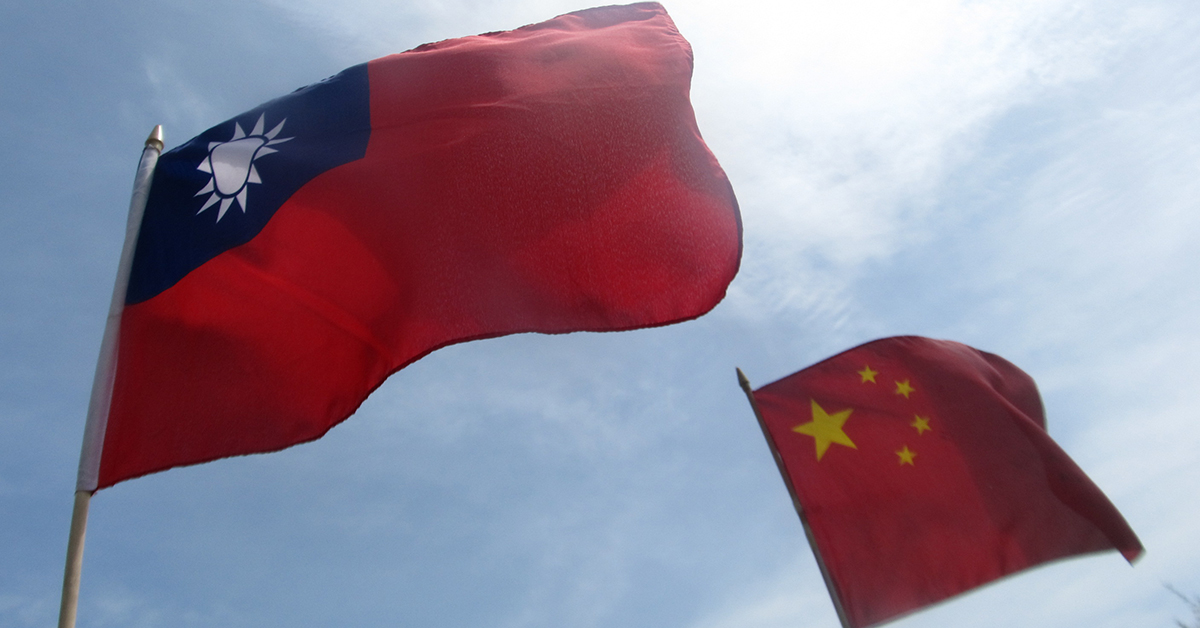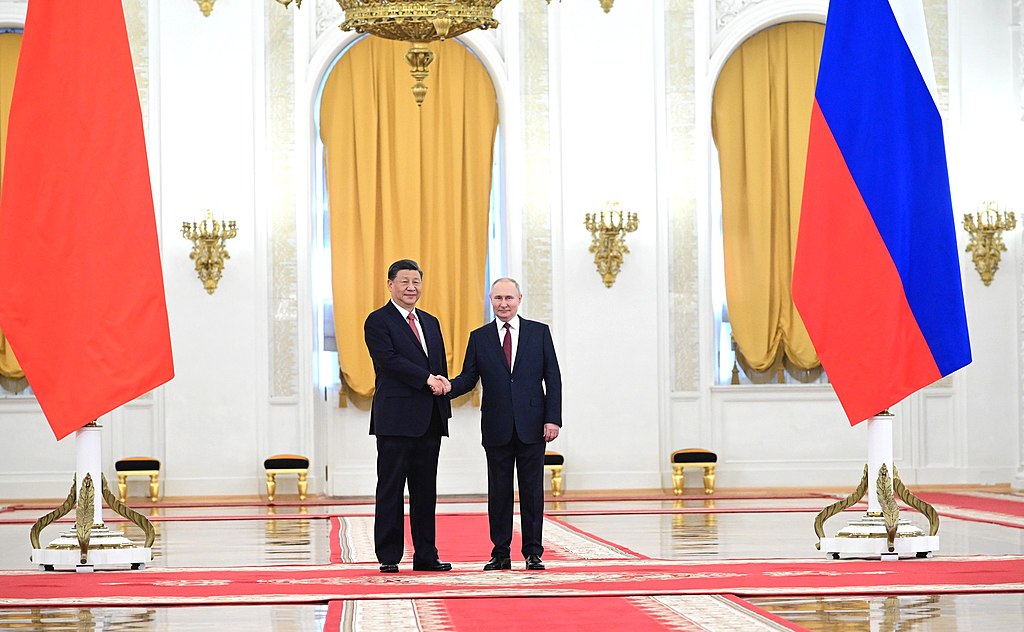LSE IDEAS China Foresight published ‘FOCAC at 21: Future Trajectories of China-Africa Relations’ on 20 October. Read the full report here.
This year’s Forum on China-Africa Cooperation (FOCAC) ministerial summit is taking place on 29 and 30 November in Dakar, Senegal. The eighth iteration of FOCAC comes at a crucial time for China and Africa. The social and economic fall-out from the COVID-19 pandemic in the context of worsening instability in regional hotspots such as Ethiopia, Sudan and Guinea and the omnipresent climate crisis, make this year’s FOCAC a key venue to observe whether China can emerge from the pandemic as a leading global actor.
Africa has become more diplomatically important for a post-COVID China, representing a source of legitimacy to frame China as a responsible great power, while also supporting Beijing’s core interests on issues including Taiwan and Xinjiang – both of which have become increasingly controversial over the last year and attracted sustained criticisms from Europe, the US and their allies.
The ministerial meeting in Senegal comes at a time when the relationship has broadened to include economic, cultural, security, technological and health cooperation. In order to capture this growing complexity, LSE IDEAS China Foresight brought together an international team of experts to highlight emerging trends that have the potential to shape China-Africa relations in the near to medium term future. Below is a summary of the main points of the report.
Rebalancing capital outflows to Africa
There is some trepidation about a potential Chinese financial withdrawal from Africa. Xi Jinping’s ‘Dual Circulation’ pledges to reduce overseas capital flows and rebalance growth towards domestic consumption. And prior to the pandemic, Chinese FDI in Africa reached $2.7 billion USD and Chinese lending was over $7 billion USD.
But Stephen Paduano argues that to rebalance its large capital outflows, Beijing would effectively have to engineer a rise in domestic consumption, either through an increase in wages or an increase in debt. As China’s financial system is currently reckoning with $540 billion USD in outstanding non-performing loans, it is difficult to imagine Beijing actively seeking to increase debt levels.
Nonetheless, a world in which China is not pursuing export-led growth is a prospect that middle- and low-income countries could look forward to. Basic balance-of payments dynamics demonstrate how reining in overseas investments requires a rise in the low currency and low wages that have helped to make China so competitive for so long. The withdrawal of Chinese export competition would benefit a number of African countries.
Economic recovery after COVID-19
As Africa’s largest trading partner since 2009, China is well-positioned to support African countries’ post-COVID economic recovery, and FOCAC represents a critical opportunity to improve trade relationships with China to boost Africa’s economic health. But there are structural asymmetries in the commercial relationship between China and Africa, and these are most pronounced in trade patterns, where China imports from Africa mostly raw material and African countries import from China mainly value-added products.
As such, Mzukisi Qobo argues that African decision-makers must use their agency more effectively to seek more market access in China, while also using the African Continental Free Trade Agreement as a basis for industrial development and engagement with external actors. They will also need to shore up domestic institutional capabilities, improve their production profile, take a leap in innovation, and negotiate with external partners on a sounder institutional and economic basis.
Greater security engagement
Bourgeoning China-Africa economic ties have prompted the institutionalisation of security cooperation through FOCAC since 2012. While China’s main interest lies in protecting commercial entities and citizens, security capacity building and military diplomacy are increasingly used as tools to strengthen existing bilateral relationships with African counterparts.
Lukas Fiala shows that China has stepped up defence and military diplomacy in Africa. Multilateral fora have brought together African defence and security officials with Chinese counterparts to strengthen mutual capacity to protect Chinese infrastructure and personnel. Between 2003 and 2017, China has loaned 3.56 billion $US to African countries for military, domestic security and dual-use purposes. China also remains the second largest financier of UN Peacekeeping missions and the largest troop contributor among permanent members of the UN Security Council.
During the COVID-19 pandemic, the PLA has further been embedded in the Chinese government’s broader health diplomacy, providing PPE and vaccines as well as training to several African militaries. The provision of personal protective equipment (PPE), training and vaccines to African militaries likely aims to consolidate military-to-military relationships, while also presenting the PLA as a partner of choice for the armed forces of African countries.
Recent instability in the Horn of Africa including the ongoing conflict in Ethiopia and the coup in Sudan will put China’s crisis diplomacy to test while also shed light on the limitations of China’s proclaimed development-security nexus in fostering stability in Africa.
Stereotypes around China’s digital footprint in Africa
While China’s role in digital infrastructure in Africa has been significant, its involvement has also offered vast opportunities for oversimplification, treating complex artefacts and assemblages as gadgets, ready to produce their desired—or undesired—effects. Iginio Gagliardone argues that empirical evidence points towards a more complex picture. China neither exports a coherent version of digital governance to Africa, nor do Chinese surveillance technologies work as often proclaimed.
The success of Huawei’s Safe City and ZTE’s Smart City projects in Africa has varied considerably from country to country. In Kenya, an early African adopter of Huawei’s Safe City, crime rates were apparently unaffected by the installation of new surveillance technologies in Nairobi and Mombasa.
Moreover, China is by no means the only actor to provide services and technology to enable the surveillance of African civil societies. In Ethiopia, China provided a loan of more than $3 billion USD, the largest loan in the history of telecommunications in Africa, to completely overhaul Ethiopia’s digital infrastructure. But Ethiopian leaders displayed a remarkable ability to shape and retain control of their own surveillance apparatus, contracting Italian company Hacking Team to target Ethiopian journalists and opposition leaders in the diaspora, and using a commercial software developed by UK- and Germany-based Gamma International for similar purposes.
Rising number of African students in China
China has invested considerable resources into shaping the production of knowledge about China and Africa. People-to-people exchanges are now recognised in Africa-China ties as almost equally important as business transactions and diplomatic relations.
China has emerged as a top destination for African students, attracting over 50,000 African students in 2015. One reason for this is a progressive growth in Chinese government support for African scholarship opportunities. China offered about 18,000 scholarships 2012, rising to 50,000 in 2018. The same number was also pledged towards training opportunities and workshops for professionals in 2018.
Yu-Shan Wu notes that challenges remain, and several key gaps should be addressed at the coming FOCAC: the issue of language requirements for study, as English remains the primary language for people-to-people exchanges; the preservation of alumni relations for African students who have completed their studies in China; improving tacit understandings which go beyond government-level interests; and the disruption COVID-19 has presented to African students studying in China.
China and Africa in space
While Africa’s space sector is diverse and heterogeneous, China is playing an increasingly influential role in several emerging trends. China is unique in that its space engagements with African nations are conducted within a broader context of bilateral comprehensive strategic partnerships or strategic partnerships, unlike other space powers pursuing singular projects.
China’s largest impact has been on African satellite industry, focusing on development and the building of sovereign capability. China has launched 6 of 45 African satellites, for which it has also provided Tracking, Telemetry and Control (TT&C) support. Most of these projects included extensive training and support of local engineers. China has also funded a satellite Assembly, Integration and Testing centre in Egypt, which is being built in the country’s “Space City”.
Gidon Gautel argues that the most important element of Africa-China space engagements to observe over coming years is how ongoing initiatives shape the approach of partners and groupings of like-minded nations in intracontinental and multinational fora. Current efforts within Africa to establish a pan-African approach to space, such as the African Space Agency, could produce a more uniform voice on broad geopolitical and space governance questions. Chinese engagement will likely shape these dynamics.
Limited provision of vaccines
China’s public health diplomacy in Africa during the COVID-19 pandemic has flowed from the legacy of Chinese medical teams which have operated in Africa since the Mao period as well as from China’s previous engagement in fighting the Ebola epidemic. Health diplomacy remains an area of vital and strategic importance in building China’s reputation in Africa.
Lina Benabdallah notes the importance of China-Africa solidarity and reciprocity in the face of COVID-19. In the early weeks of the epidemic, several African countries (including Algeria and Egypt) sent planes filled with PPE including masks, gloves, thermometers, and other assistance. This was reciprocated when the pandemic moved into the African continent, when China sent not only PPE and material goods to African countries but also shared best practices to manage and contain the pandemic.
But China’s provision of COVID-19 vaccines to African countries has been considerably less concerted than in other parts of the world, including the Asia-Pacific. Of the 1.1 billion Chinese vaccines donated or sold to other countries to date less than 10% have been delivered to African countries. Questions surrounding intellectual property when localising production of Chinese vaccines in African countries remain a challenge to realising Xi Jinping’s pledge of making vaccines a public good. As Africa continues to battle the pandemic, vaccine provision will certainly be a topic of focus at FOCAC 21.
Asking the right questions, expecting the wrong answers
The findings of our report highlight lessons to evaluate the outcomes of FOCAC this year and shed light on broader debates that aim to understand China’s increasingly global reach. As our summary demonstrates, general stereotypes and generalisations often fail to hold when confronted with empirical evidence. Whether observers refer to China’s alleged “predatory lending” practices or the export of a unified system of digital surveillance, the African context often proves too diverse and complex to verify such broad sweeping arguments.
Ahead of FOCAC, observers should thus especially focus on how African agency will continue to transform China’s engagement in Africa and beyond. Re-reading China-Africa as Africa-China relations can contribute to a sounder understanding of China’s engagements, while emancipating the role that actors in the Global South play in shaping China’s rise. Instead of expective the wrong answers, we should thus first turn to asking the right questions
This blog summarises LSE IDEAS’ latest report ‘FOCAC at 21: Future Trajectories of China-Africa Relations’. Read the full report here.





